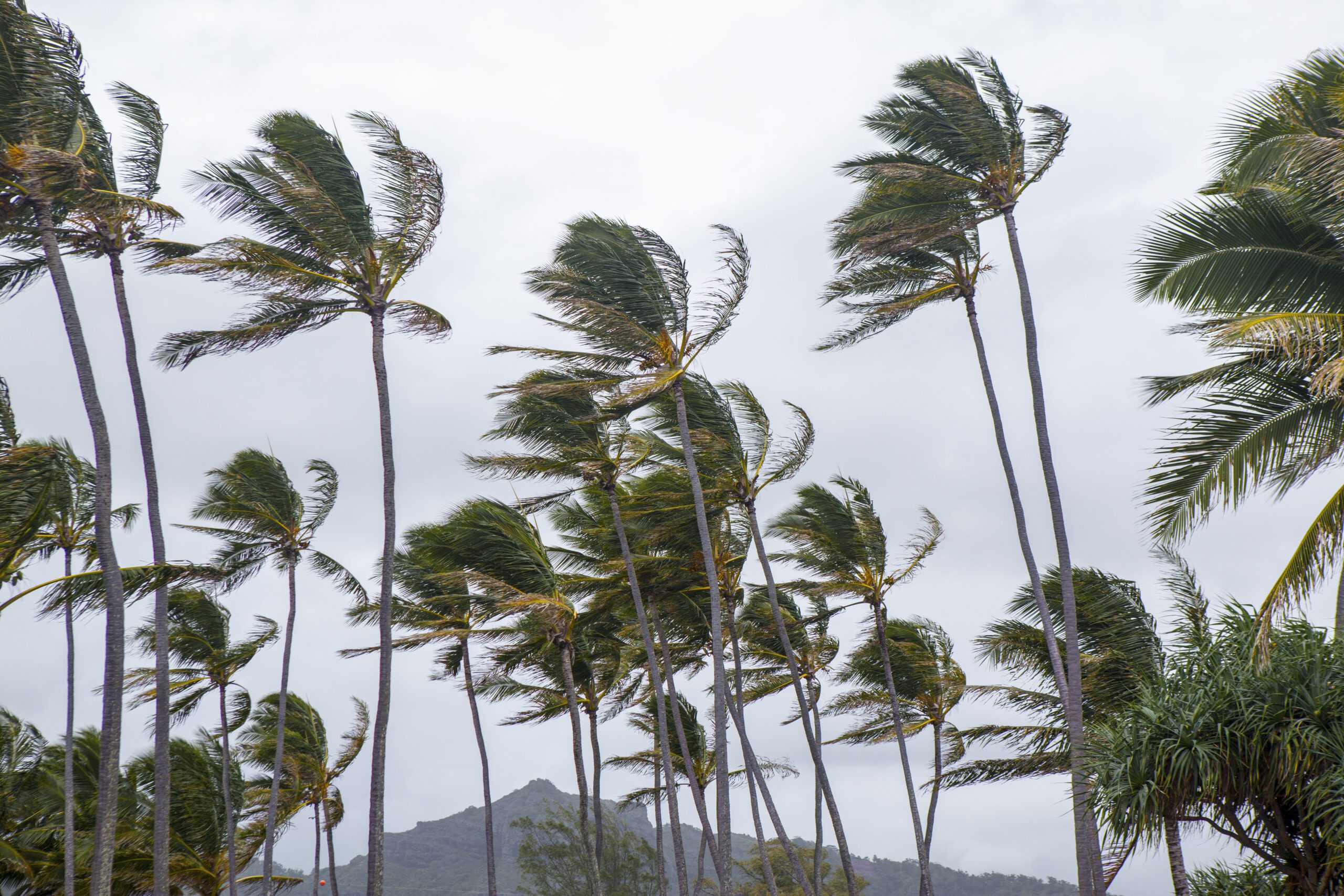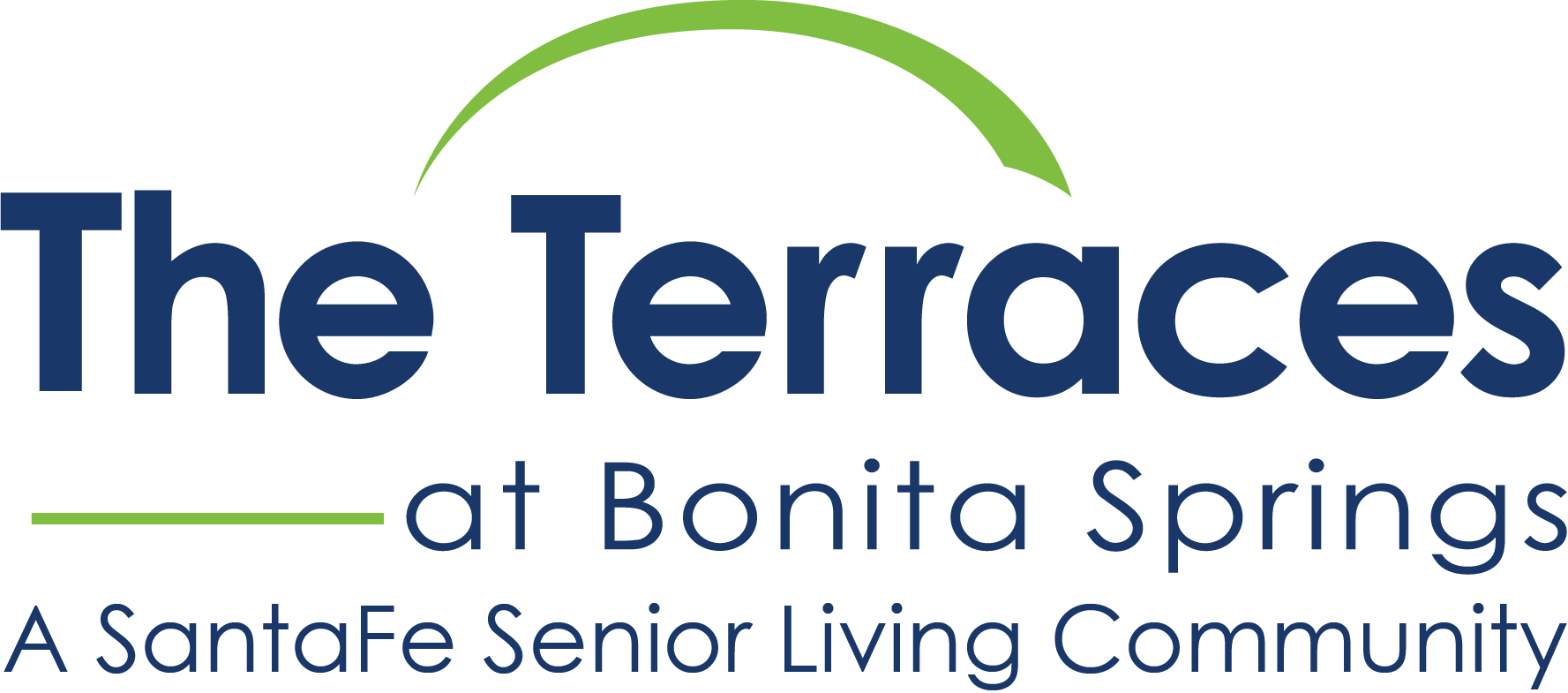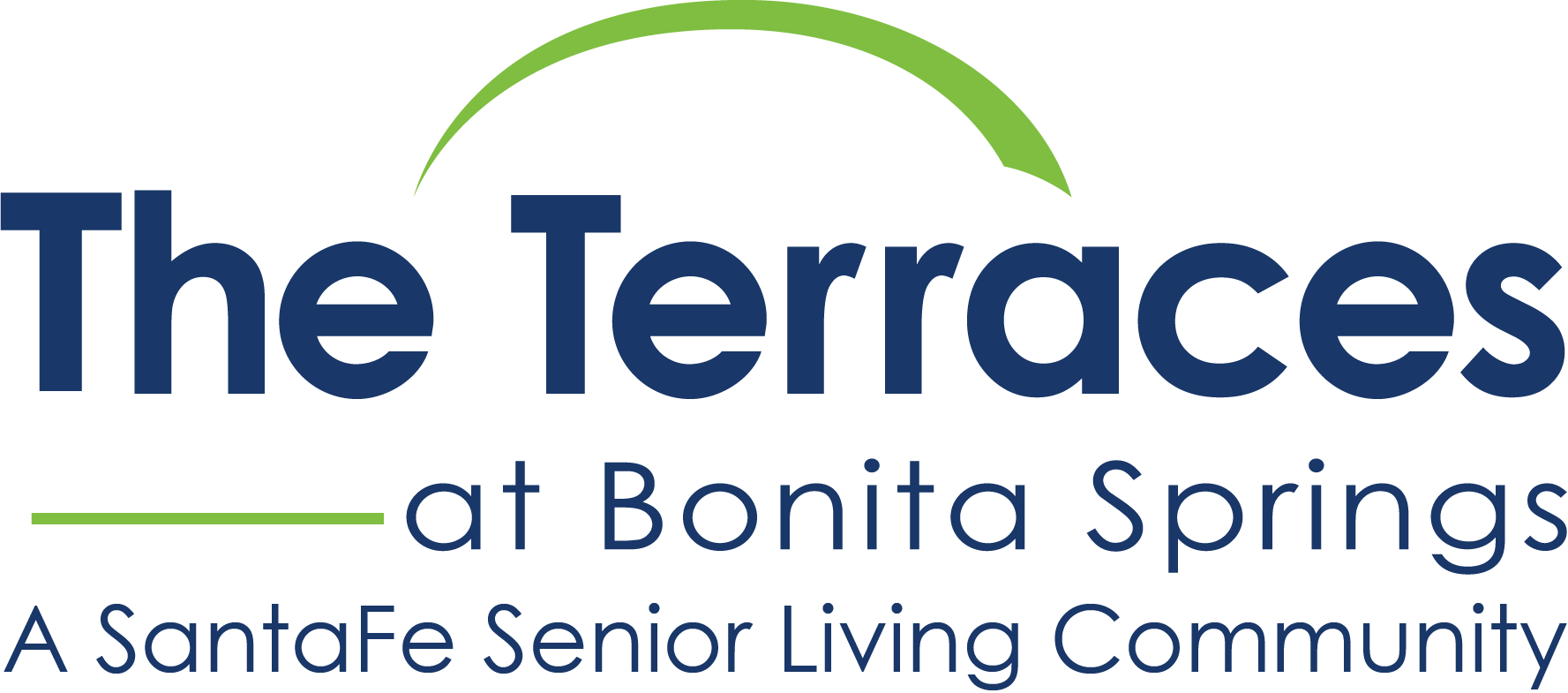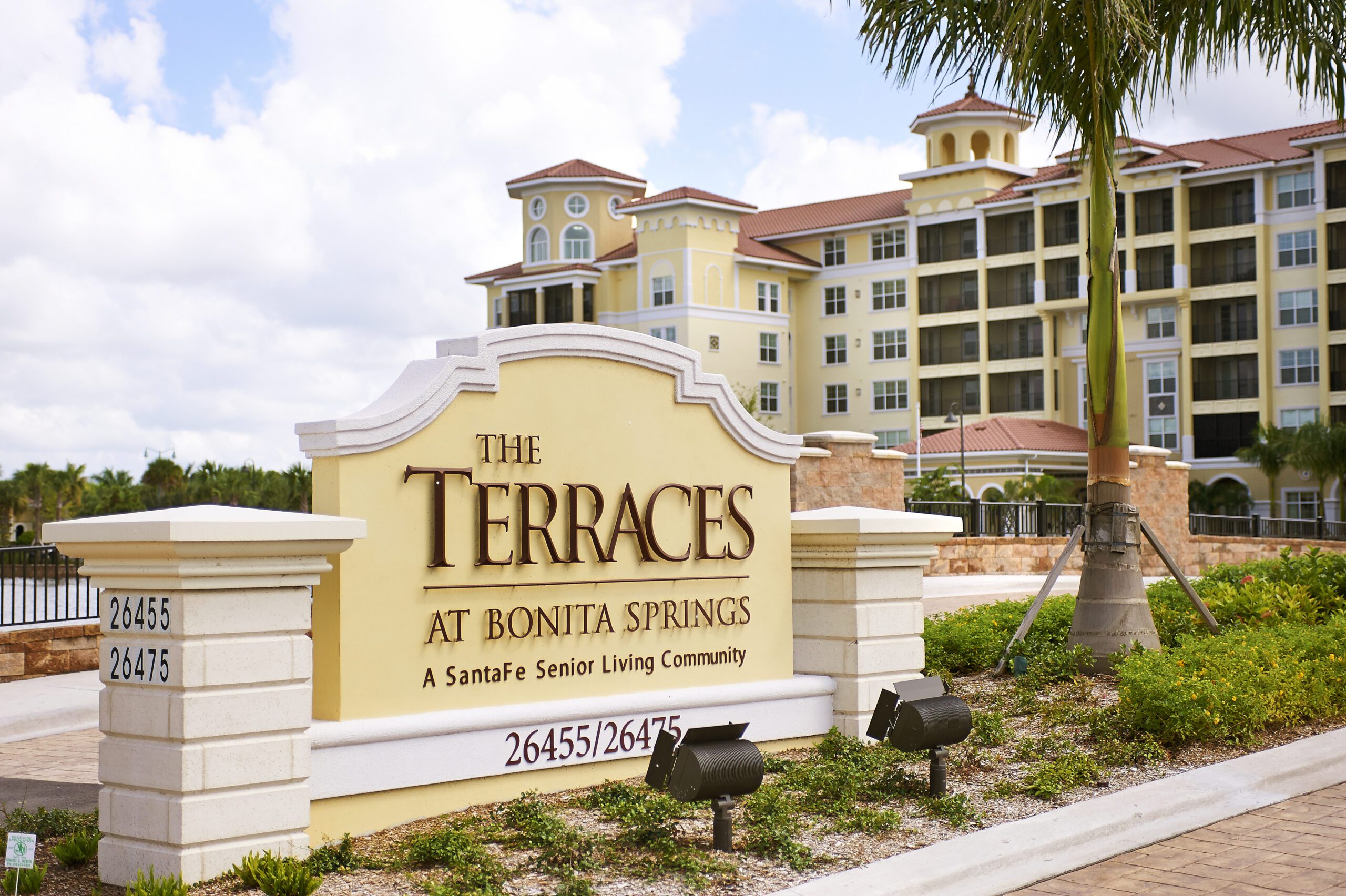As the warmer months usher in summer, they also bring the onset of hurricane season.
At The Terraces at Bonita Springs, you can enjoy the changing seasons with a sense of calm, knowing our community is 16 feet above sea level and designed to withstand even the strongest storms. While we take care of home maintenance and many other safety precautions, we understand the importance of individual preparedness.
This checklist for how to prepare for hurricane season in Florida is tailored specifically for seniors. By creating a personalized plan, you’ll feel more confident and secure – not only this hurricane season, but in the years to come as well.
1. Water and Nonperishable Food
Ensure an adequate supply of water for drinking and hygiene purposes. Lightly stock up on canned goods, dry foods, and snacks that don’t require refrigeration or cooking. Store items that are easy to open and have a long shelf life.
2. Medications
Try to maintain a two-week supply of all medications, including refills well in advance. Keep them in their original containers for proper labeling, and store them in a cool, dry place. Create a medication list for your emergency kit, and make sure to share it with loved ones.
3. Flashlight and Batteries
Have a reliable flashlight (or two) with extra batteries readily available. This will be essential in case of power outages during the storm.
4. First Aid Kit
Make a basic first aid kit, including bandages, antiseptic wipes, pain relievers, and any necessary medical supplies.
5. Important Documents
Keep important documents in a waterproof container or sealed plastic bag. This includes identification papers, insurance policies, medical records, and any other essential documents.
6. Emergency Contacts
Compile a list of emergency contacts, including family members, friends, neighbors, and local authorities. Make sure this contact list is easily accessible, whether it’s stored in a phone, written, or both.
7. Stay Informed
Stay up to date with the weather and evacuation orders by tuning in to local news channels, signing up for weather alerts on your smartphone, and/or investing in a weather radio.
8. Family Check-Ins
Establish a plan for regular check-ins with family members or friends before, during and after the storm. This will provide reassurance to your loved ones and ensure that everyone is accounted for.

9. Emergency Alerts
Enable emergency alerts on smartphones to receive notifications from local authorities about evacuation orders, severe weather warnings, and other critical information.
10. Neighborhood Network
Build a support network within the community. Connect with neighbors or join community groups to share information, resources and support during emergencies.
11. Know Your Evacuation Zone
Determine if you live in an evacuation zone, and familiarize yourself with the designated evacuation routes. You can find this information from local authorities or through online resources provided by emergency management agencies.
12. Identify Shelter Options
For those who aren’t residents of The Terraces at Bonita Springs, research nearby shelters that accommodate seniors or individuals with special needs. These shelters may offer medical assistance, mobility aids, and other essential services during emergencies.
13. Transportation Arrangements
Plan transportation options with family members, friends, or local authorities for evacuation assistance, especially if you don’t have access to personal vehicles.
14. Pack an Evacuation Kit
Prepare an evacuation kit with items such as medications, medical supplies, personal hygiene items, a change of clothes, important documents, and any necessary mobility aids.
15. Communicate Your Plan
Share your evacuation plan with family members, caregivers and neighbors. Make sure everyone knows the plan and understands their roles and responsibilities in case of evacuation.
16. Pet Preparedness
Include them in your evacuation plan by researching pet-friendly shelters or making arrangements with loved ones. Prepare a separate kit with food, water, medications, leashes, and familiar items to keep them comfortable. Ensure their microchip information is current and consider desensitizing them to storm sounds beforehand.
17. Communicate With Health Care Providers
Maintain open communication with health care providers to ensure continuity of care during emergencies. Discuss emergency plans, medication management strategies, and any specific health concerns or needs.
18. Backup Power
If you rely on medical equipment or assistive devices that require electricity, consider investing in a backup power source such as a generator or portable power bank. Ensure that these devices are fully charged and easily accessible during power outages.
19. Emergency Identification
Wear medical identification bracelets or carry emergency medical information cards that clearly state any medical conditions, allergies, or special needs. This information can be crucial for first responders in case of emergencies.
20. Stay Indoors
During the storm, remain indoors and away from windows to avoid injury from flying debris or shattered glass. Seek shelter in an interior room or designated safe area within your residence.
21. Avoid Flooded Areas
Stay away from flooded streets. Water levels can rise rapidly and pose a significant danger, especially to pedestrians and drivers. Follow evacuation orders issued by local authorities and seek higher ground if flooding occurs.
22. Prevent Electrical Hazards
Minimize the risk of electrical hazards by unplugging electronic devices and appliances during power outages. Avoid using candles for lighting and opt for battery-powered flashlights or lanterns instead.
 23. Emergency Response Teams
23. Emergency Response Teams
Store local emergency response team contact information in an easy-to-find place. These teams, including firefighters, paramedics, and search and rescue teams, play a crucial role in providing assistance and support during hurricanes and other disasters.
Discover Peace of Mind and More at The Terraces at Bonita Springs
Hurricanes can be stressful, but at The Terraces at Bonita Springs, we prioritize the well-being of our residents throughout every season. Our commitment to preparedness goes beyond plans – it’s woven into the very fabric of our community.
We invite you to experience the peace of mind and sense of belonging that come with being part of our exceptional community. Contact our team online or call 239-208-6963 to learn more about how The Terraces at Bonita Springs can become your haven during any storm, and every day.



 23. Emergency Response Teams
23. Emergency Response Teams